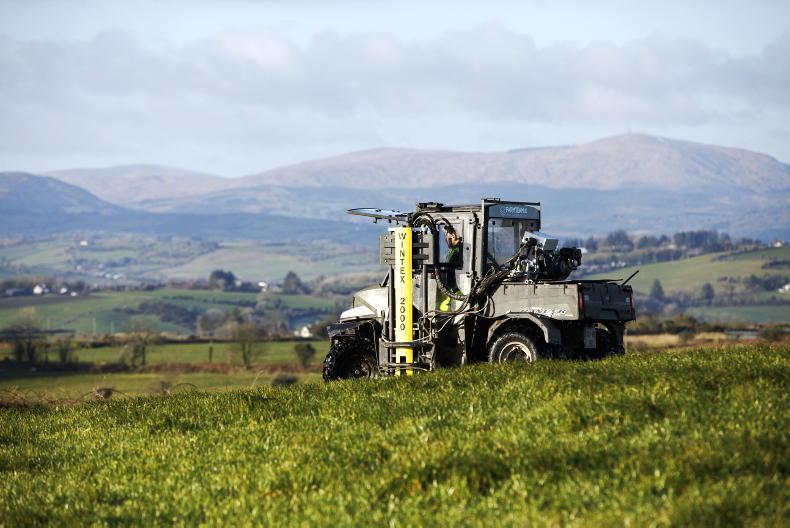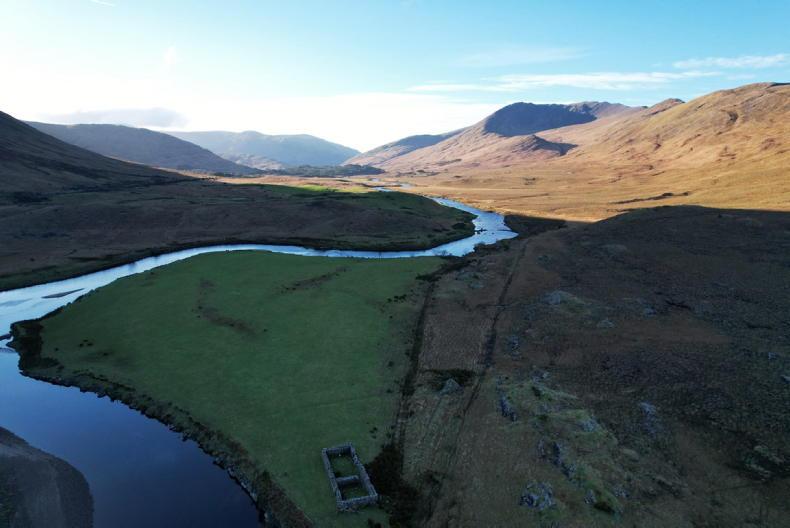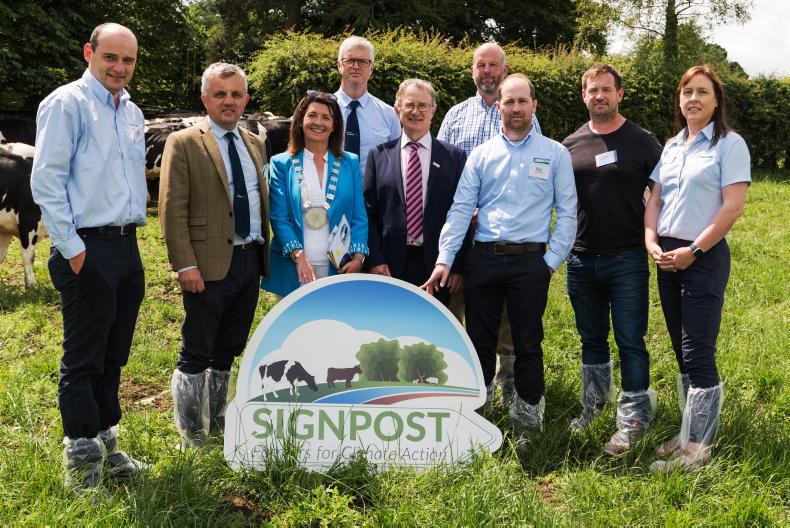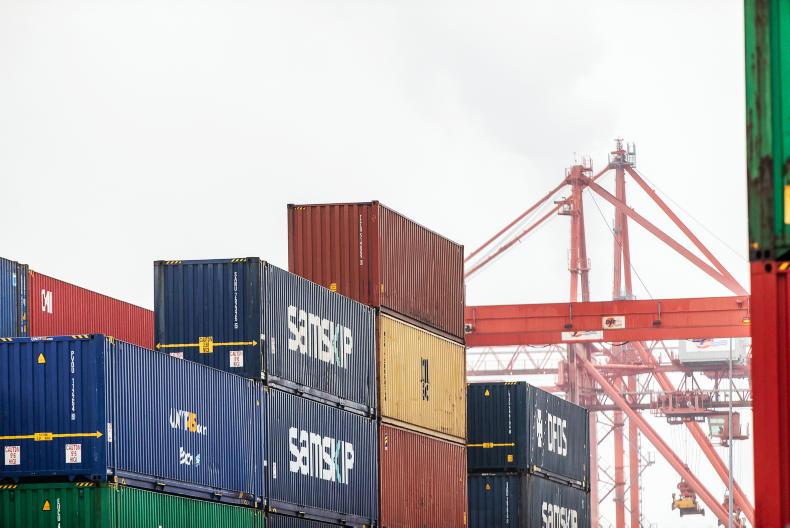The European Commission has adopted a proposal to certify carbon removals in an attempt to reach its goal of climate neutrality by 2050. The proposals were brought forward on Wednesday 30 November.
Carbon removals describe carbon that is taken from the atmosphere and stored in trees, hedges, soils and by other methods.
Farms have huge potential to store more carbon and offset emissions produced on farms as well as potentially offsetting emissions from other farms or sectors.
The Commissions has said that the first EU-wide voluntary framework to reliably certify high-quality carbon removals will boost innovative carbon removal technologies and sustainable carbon farming solutions, and contribute to the EU's climate, environmental and zero-pollution goals.
Capacity
The regulations aim to improve the EU's capacity to quantify, monitor and verify carbon removals and therefore give greater transparency to the proposals.
The Commission plans to work with experts to develop “tailored certification methods for carbon removal activities delivering on climate and other environmental objectives”.
The proposals suggest establishing four QU.A.L.ITY criteria as outlined below:
Quantification: Carbon removal activities need to be measured accurately and deliver unambiguous benefits for the climate.Additionality: Carbon removal activities need to go beyond existing practices and what is required by law.Long-term storage: Certificates are linked to the duration of carbon storage so as to ensure permanent storage.Sustainability: Carbon removal activities must preserve or contribute to sustainability objectives such as climate change adaptation, circular economy, water and marine resources, and biodiversity.Aside from storing carbon in trees and land other technologies can be used such as bioenergy with carbon capture and storage (BECCS) or direct air carbon capture and storage (DACCS), can capture carbon and store it permanently.
Funding for carbon removals will come from the following private and public financing, including impact finance or result-based public support under State aid, as well as the Innovation Fund (which can finance BECCS and DACCS projects), the Common Agricultural Policy, the Regional Development Fund, the LIFE programme and the Horizon Europe programme.
The proposals will be discussed by the commission and the parliament and the Commission will develop tailored certification methodologies for the different types of carbon removal activities, supported by an expert group. The first meeting of the expert group is planned for the first quarter of 2023.
Commenting on the proposals to the Irish farmers Journal MEP Colm Markey stated: “While the Commission’s proposal for a regulation on the certification of carbon removals is welcome - and overdue, I’m concerned that it doesn’t go far enough.
“From what I have seen, the plan simply isn’t robust enough to deliver the true value of carbon credits. It does not include an overall framework or centralised system - with key decisions being left to individual member states, which I believe to be a missed opportunity.
“While I welcome the role private sector funding could play as part of that process, there is still no real sense of how farmers will be remunerated.”
The European Commission has adopted a proposal to certify carbon removals in an attempt to reach its goal of climate neutrality by 2050. The proposals were brought forward on Wednesday 30 November.
Carbon removals describe carbon that is taken from the atmosphere and stored in trees, hedges, soils and by other methods.
Farms have huge potential to store more carbon and offset emissions produced on farms as well as potentially offsetting emissions from other farms or sectors.
The Commissions has said that the first EU-wide voluntary framework to reliably certify high-quality carbon removals will boost innovative carbon removal technologies and sustainable carbon farming solutions, and contribute to the EU's climate, environmental and zero-pollution goals.
Capacity
The regulations aim to improve the EU's capacity to quantify, monitor and verify carbon removals and therefore give greater transparency to the proposals.
The Commission plans to work with experts to develop “tailored certification methods for carbon removal activities delivering on climate and other environmental objectives”.
The proposals suggest establishing four QU.A.L.ITY criteria as outlined below:
Quantification: Carbon removal activities need to be measured accurately and deliver unambiguous benefits for the climate.Additionality: Carbon removal activities need to go beyond existing practices and what is required by law.Long-term storage: Certificates are linked to the duration of carbon storage so as to ensure permanent storage.Sustainability: Carbon removal activities must preserve or contribute to sustainability objectives such as climate change adaptation, circular economy, water and marine resources, and biodiversity.Aside from storing carbon in trees and land other technologies can be used such as bioenergy with carbon capture and storage (BECCS) or direct air carbon capture and storage (DACCS), can capture carbon and store it permanently.
Funding for carbon removals will come from the following private and public financing, including impact finance or result-based public support under State aid, as well as the Innovation Fund (which can finance BECCS and DACCS projects), the Common Agricultural Policy, the Regional Development Fund, the LIFE programme and the Horizon Europe programme.
The proposals will be discussed by the commission and the parliament and the Commission will develop tailored certification methodologies for the different types of carbon removal activities, supported by an expert group. The first meeting of the expert group is planned for the first quarter of 2023.
Commenting on the proposals to the Irish farmers Journal MEP Colm Markey stated: “While the Commission’s proposal for a regulation on the certification of carbon removals is welcome - and overdue, I’m concerned that it doesn’t go far enough.
“From what I have seen, the plan simply isn’t robust enough to deliver the true value of carbon credits. It does not include an overall framework or centralised system - with key decisions being left to individual member states, which I believe to be a missed opportunity.
“While I welcome the role private sector funding could play as part of that process, there is still no real sense of how farmers will be remunerated.”








SHARING OPTIONS